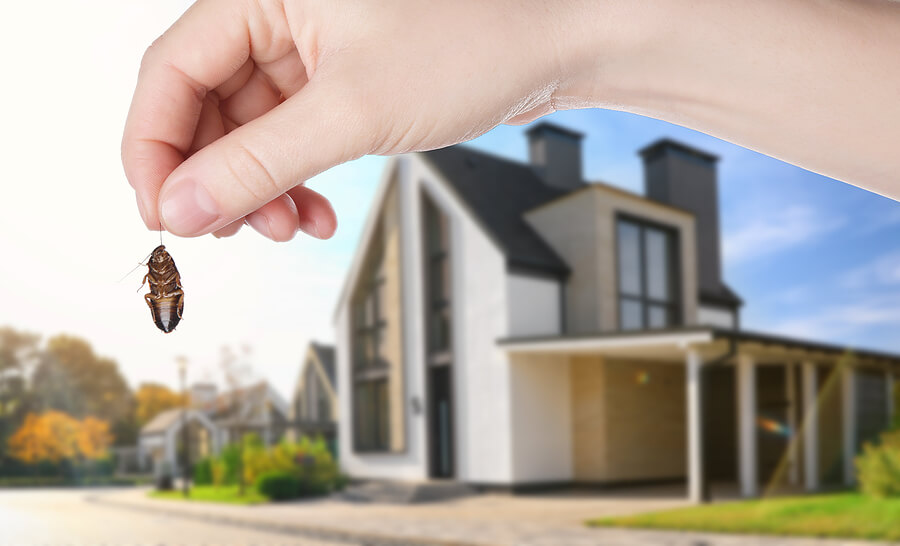Pests are a common problem for homeowners. They can invade your home in any season, and cause all sorts of damage. The good news is that there are ways to prevent pest infestations from happening in the first place.

Pesticides or insecticides can be toxic to humans. Here are some safe, effective methods that will help keep your home pest-free.
Inspect your home for any cracks or openings that pests could use to enter
The best way to keep pests out of your home is to prevent them from getting in the first place. Inspect your home regularly for any cracks or openings that could be used as an entry point. Be sure to check around doors and windows, in the attic, and in the basement.
Pay special attention to any areas where utilities enter the home, as these are common entry points for pests. If you do find any openings, seal them with caulk or another appropriate material.
Store food in airtight containers and dispose of garbage regularly
Food storage is an important part of keeping your kitchen clean and it also keeps pests away from your home. When storing dry goods like flour, sugar, and cereal, be sure to use airtight containers. This will keep them fresh and free from critters like ants and mice.
Pests love rubbish. It’s also important to dispose of garbage regularly. If you let garbage pile up, it will attract pests like flies and roaches. Be sure to empty the trash can often and wipe down the inside of the bin to prevent these problems.
Clean your home regularly
A clean home is a pest-free home. But more than that, regular cleaning can also help to improve your health. Dust and dirt can accumulate quickly, especially in high-traffic areas like the kitchen and bathroom. And if you have pets, their fur can also add to the build-up. Over time, all of this can lead to allergies, asthma, and other respiratory problems. Not to mention the potential for pest infestations.
The good news is that regular cleaning can help to reduce these risks. By taking some time each week to vacuum, dust, and mop, you can remove harmful particles from the air and keep your home looking and feeling its best. It will also deter pests from making themselves comfortable in your home.
Keep vegetation trimmed back and away from the house
One of the best ways to protect your home from insects and other pests is to keep vegetation trimmed back and away from the house. By trimming back foliage, you create a barrier that can help to keep pests from getting too close to your home.
Additionally, trimming back trees and shrubs have several benefits. For example, it can help to reduce the risk of branches falling on your home during a storm. Finally, keeping vegetation trimmed can also help to prevent thieves from using it as cover to break into your home.
Use pest control products sparingly and only when necessary
Many pest control products such as pesticides contain harmful chemicals that can be dangerous to your health if used improperly. Pest control products are effective at keeping your home free of unwanted critters, but it’s important to use them sparingly and only when necessary.
In addition, many of these products are also harmful to the environment. When used excessively, they can pollute the air, water, and soil, and potentially harm plant and animal life. Therefore, it’s important to read the label carefully and follow the directions exactly to avoid any negative impacts on your health or the environment. If possible, try to opt for natural pest control methods first, such as removing food sources and access points or using traps or barriers.
Remove standing water from your property to prevent mosquito breeding
Most people are familiar with the annoying buzzing of mosquitoes, but what many don’t realize is that these pests can also transmit diseases like the West Nile virus and Malaria. To help prevent the spread of these illnesses, it’s important to remove standing water from your property, especially in crawlspaces. Areas underneath your home such as crawl spaces can be prone to mold growth and infestations due to high humidity levels.
Mosquitoes lay their eggs in water, so even a small puddle can become a breeding ground for hundreds of these insects. In addition to being a nuisance, standing water can also lead to water damage and flooding. So ditch the mosquito repellent and take steps to eliminate standing water on your property. Not only will you be doing your part to prevent disease, but you’ll also be protecting your home from water damage.
Final Words
While you can’t completely seal your home off from pests, there are many things you can do to make it less inviting and reduce the chances of an infestation. By inspecting your home for any cracks or openings that pests could use to enter, storing food in airtight containers and disposing of garbage regularly, cleaning up any spills or crumbs immediately, keeping vegetation trimmed back and away from the house, using pest control products sparingly and only when necessary, and removing standing water from your property, you can make it much more difficult for pests to take hold.
Author Bio
Diana R.
Diana is a writer at Basement Guides with several years of writing experience in basement-related problems and home safety. She has written and published many resources and guides related to pest control and home improvement. Diana is currently working to spread the word about pest control and home improvement through resourceful guides and articles.



One more thing that will help you keep pests at bay is incorporating pest-repelling plants like rosemary, basil, and mint into your indoor decor. Such a simple and cheap solution!